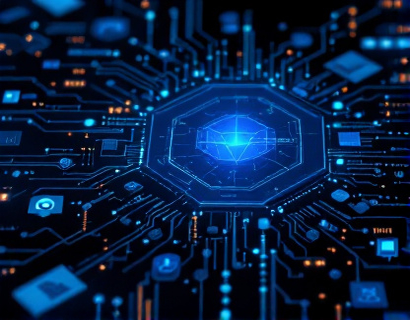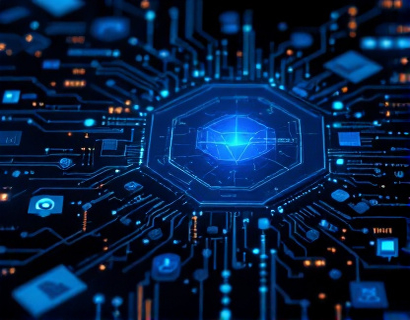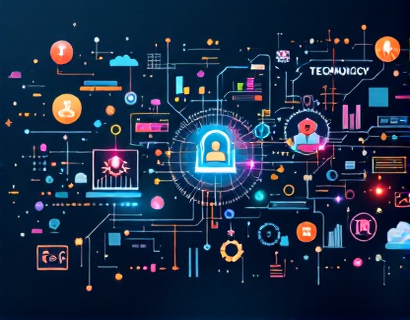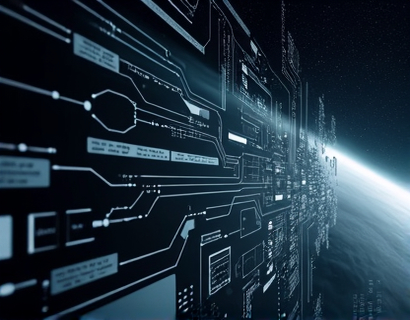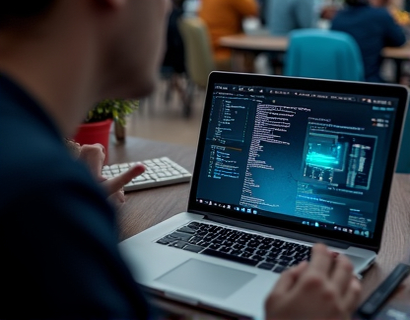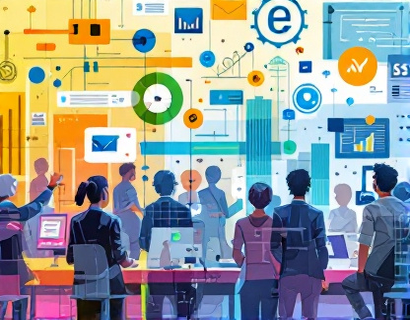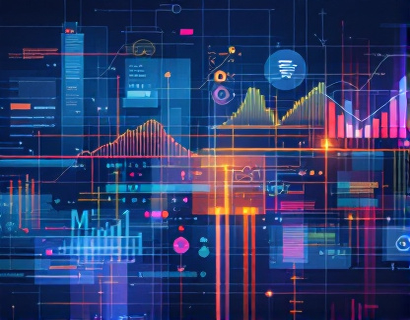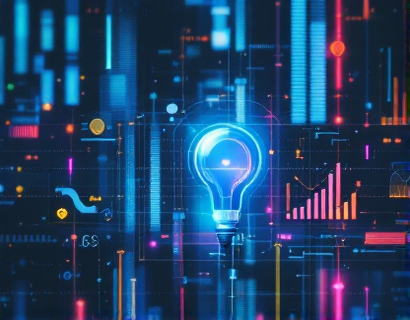Decentralized Productivity Boost: Integrating AI and Crypto for Enhanced Business Solutions
The intersection of artificial intelligence and cryptocurrency is giving rise to a new era of decentralized productivity tools. These innovative solutions are redefining how businesses operate, enhancing efficiency, and fostering digital collaboration. This article explores the transformative potential of combining AI and crypto to create advanced decentralized tools that are set to revolutionize the way we approach productivity and collaboration in the digital space.
The traditional centralized models of productivity and collaboration are being challenged by decentralized alternatives. These new systems leverage blockchain technology to create transparent, secure, and tamper-proof environments. When integrated with AI, the possibilities become even more profound, offering businesses unprecedented levels of automation, insight, and efficiency.
Understanding Decentralization and Its Benefits
Decentralization refers to the distribution of functions, powers, or activities away from a central authority. In the context of productivity tools, this means moving from centralized servers and platforms to a network of nodes that collectively manage and process data. This shift brings several key benefits.
Firstly, decentralization enhances security. By distributing data across a network, the risk of a single point of failure is significantly reduced. This makes it much harder for hackers to compromise the system, as they would need to breach multiple nodes simultaneously.
Secondly, decentralization promotes transparency. All transactions and data exchanges are recorded on a public ledger, which can be verified by anyone. This level of transparency builds trust among users and ensures accountability.
Lastly, decentralization can improve resilience and availability. Since data is not stored in a single location, the system is less vulnerable to outages and disruptions. This ensures that productivity tools remain accessible and functional even in the face of potential failures.
AI in Decentralized Systems
Artificial intelligence plays a crucial role in enhancing the capabilities of decentralized systems. AI algorithms can process vast amounts of data, identify patterns, and make predictions, all of which are invaluable in a decentralized environment.
One of the primary applications of AI in decentralized productivity tools is automation. AI can automate routine tasks, freeing up human resources for more complex and creative work. For instance, smart contracts powered by AI can execute transactions and manage agreements without the need for intermediaries, streamlining processes and reducing costs.
AI also enhances decision-making in decentralized systems. By analyzing data from various nodes, AI can provide insights and recommendations that help users make informed decisions. This is particularly useful in scenarios where real-time data analysis is critical, such as in supply chain management or financial trading.
Cryptocurrency and Decentralized Finance (DeFi)
Cryptocurrency is the digital or virtual currency that underpins many decentralized systems. It operates on blockchain technology, ensuring secure and transparent transactions. Decentralized Finance, or DeFi, is a sector that uses blockchain to create financial services without traditional intermediaries.
In the context of productivity tools, cryptocurrency and DeFi offer new ways to manage and incentivize digital collaboration. For example, tokenized rewards can be used to motivate contributors in open-source projects or to compensate participants in decentralized marketplaces. This creates a more equitable and transparent system where value is distributed based on contribution.
Moreover, cryptocurrency enables seamless and borderless transactions. Businesses can operate globally without the constraints of traditional financial systems, reducing transaction costs and increasing efficiency. This is particularly beneficial for international collaborations and cross-border projects.
Integrating AI and Crypto for Enhanced Solutions
The true power of combining AI and crypto lies in the creation of decentralized productivity tools that are both intelligent and secure. These tools leverage the strengths of both technologies to offer unparalleled benefits to businesses.
One exemplary application is decentralized data marketplaces. These platforms use AI to match data providers with consumers, ensuring that high-quality data is efficiently traded. Cryptocurrency facilitates transactions, while blockchain ensures data integrity and ownership. This creates a robust ecosystem where data is a valuable asset that can be bought, sold, and shared securely.
Another area where AI and crypto converge is in decentralized identity management. AI can help create and manage digital identities, ensuring they are secure and verifiable. Cryptocurrency can be used to reward users for maintaining and updating their identities, creating a self-sovereign identity system that empowers individuals.
Case Studies and Real-World Applications
Several projects are already demonstrating the potential of integrating AI and crypto for enhanced productivity solutions. One notable example is a decentralized project management platform that uses AI to optimize task allocation and resource management. Smart contracts ensure that tasks are completed on time and according to agreed parameters, while AI algorithms predict potential bottlenecks and suggest solutions.
Another case is a decentralized content creation platform where AI assists in content generation and curation. Creators are rewarded in native tokens for producing high-quality content, and AI algorithms ensure that the most relevant and engaging content reaches the audience. This not only enhances user experience but also incentivizes high-quality content creation.
Challenges and Considerations
While the integration of AI and crypto offers significant advantages, there are also challenges and considerations to keep in mind. Scalability is a major concern, as blockchain networks can struggle to handle high volumes of transactions. However, ongoing developments in blockchain technology, such as layer 2 solutions and sharding, are addressing these issues.
Regulatory uncertainty is another factor to consider. The crypto space is still evolving, and regulations vary widely across jurisdictions. Businesses must navigate these regulations carefully to ensure compliance and avoid legal pitfalls.
Finally, user adoption is crucial for the success of decentralized productivity tools. Educating users about the benefits and ease of use of these technologies is essential. Intuitive interfaces and user-friendly experiences can help drive adoption and widespread use.
Future Outlook
The future of decentralized productivity tools powered by AI and crypto is promising. As technology continues to advance, we can expect more sophisticated and user-friendly solutions to emerge. The convergence of these technologies will likely lead to new business models and innovative applications that we can only begin to imagine.
For tech innovators and early adopters, the potential is vast. Embracing these decentralized tools can provide a competitive edge, enabling businesses to operate more efficiently and collaboratively. The journey into this new frontier is just beginning, and those who lead the way will shape the future of digital productivity and collaboration.



